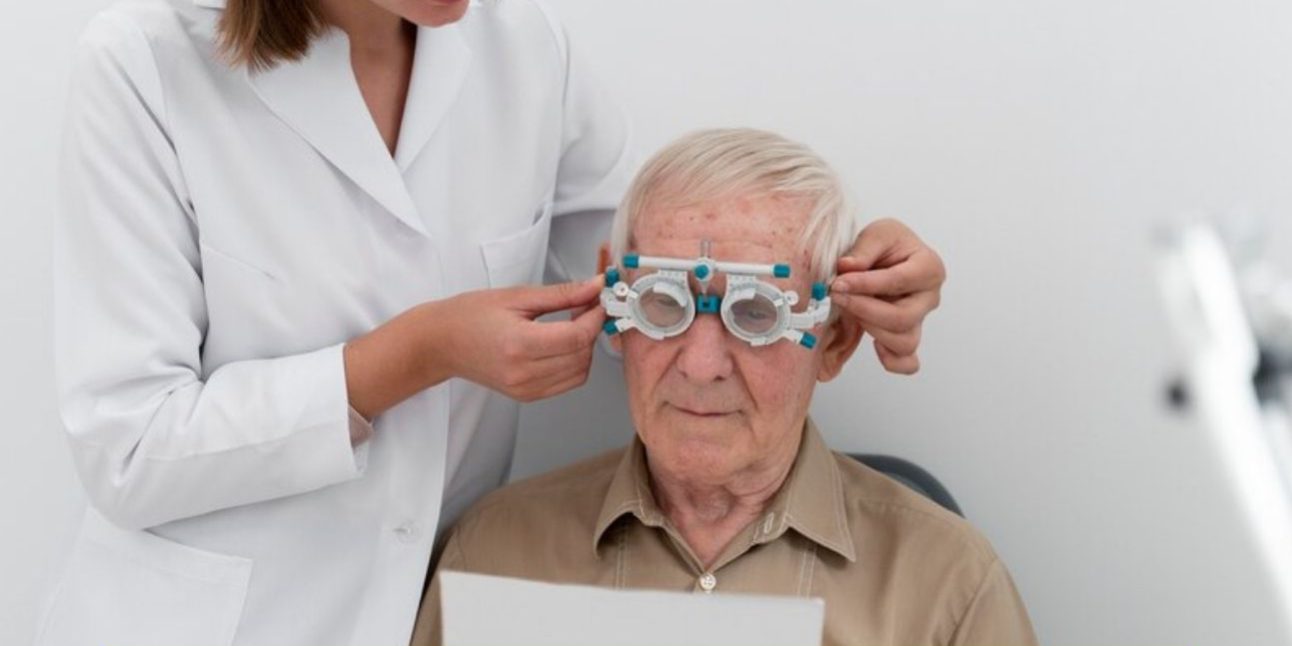Earlier Glaucoma: Symptoms, Causes, Diagnosis, and Treatment at the Eye Hospital in Moshi
Glaucoma, frequently referred to as the “silent thief of sight,” is a group of eye conditions that cause injury to the optic nerve and, increasingly, permanent vision loss. Early glaucoma is a big concern because of its subtle onset and the potential for non-reversible vision loss if left untreated. In this blog topic, we provide information about early glaucoma, including its symptoms, causes, diagnosis, and treatment options.
Symptoms of Early Glaucoma:
In its initial stages, early glaucoma advances without noticeable symptoms, but as the disease varies, patients may experience subtle vision changes.
Vision Loss:
Early glaucoma primarily affects vision initially, leading to a gradual decrease in the field of vision. Patients may notice difficulty seeing objects out of the corner of their eyes.
Blurred Vision:
Some people’s blurriness in their eyes, especially in low-light conditions, can be detected early in glaucoma. Halos Around Lights Some people with early glaucoma experience halos around lights, especially at night.
Causes of Early Glaucoma:
Early-stage glaucoma’s symptoms can vary depending on various factors.
Impaired Aqueous Humor Drainage:
The eye’s discharge system, which is used to maintain the balance of fluid in the eye, can become inadequate, starting fluid buildup and increasing pressure in the eye.
Genetic Predisposition:
Family history plays in the development of glaucoma. Individuals with close relatives, like mothers and fathers, affected by the condition have a higher risk of developing it themselves.
Age and Ethnicity:
Most old people, like those in their 60s, are a major risk factor for early glaucoma, and mostly other ethnic groups like Africans, Americans, and Hispanics have a higher chance of developing the disease.
Other Medical Conditions:
Some people have medical conditions such as diabetes, hypertension, and cardiovascular diseases that can increase the risk of developing glaucoma.
Diagnosis of Early Glaucoma:
Early detection is the key to managing glaucoma and stopping vision loss. Eye care providers use a variety of diagnostic tools and tests to detect early glaucoma, including
Tonometry:
This test measures intraocular pressure using a device called a tonometer.
Ophthalmoscopy:
By dilating the eye’s pupils and checking the optic nerve, ophthalmoscopy can identify the nerve damage that is characteristic of glaucoma.
Visual Field Testing:
This test examines your functional peripheral vision by assessing your ability to detect lights of different intensities at different locations in your field of vision.
Optical Coherence Tomography (OCT):
Optical Coherence Tomography generates high-resolution images of the optic nerve and retina, and helps detect changes in the structure of the eye associated with glaucoma.
Treatment of Early Glaucoma:
Treatment options for early glaucoma include:
Medication:
The doctor suggested eye drops or oral medication to reduce intraocular pressure, decreasing or improving aqueous humor drainage.
Laser Therapy:
Procedures like selective laser trabeculoplasty (SLT) or laser peripheral iridotomy (LPI) can help improve the drainage of aqueous humor, thereby lowering intraocular pressure.
Surgical Intervention:
For some people, medication and laser therapy are ineffective. Surgical procedures such as drainage implant surgery may be recommended to create a second way for fluid drainage.
Lifestyle Modifications:
It can be a healthy lifestyle, additionally, regular exercise like yoga, walking, jumbo, etc. They have to eat a healthy, balanced diet, avoid smoking, and drinking, and have regular eye health checks to help manage early glaucoma.
Regular eye exams and early diagnosis are critical for managing early glaucoma disorders, allowing people to take proactive measures to maintain a healthy diet and check their vision. By understanding the causes, and undergoing a check, diagnosis, and treatment, individuals can mitigate the progression of glaucoma and preserve their precious vision. Moreover, specialized care from a respectable clinic like the Eye Hospital in Moshi can provide easy solutions and support in the journey towards maintaining ocular health.







